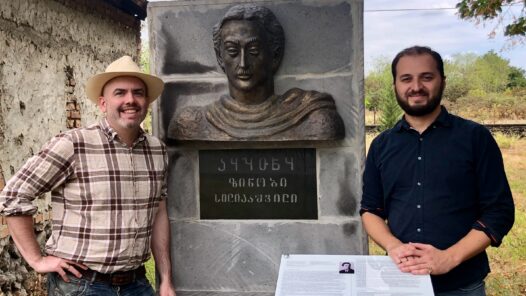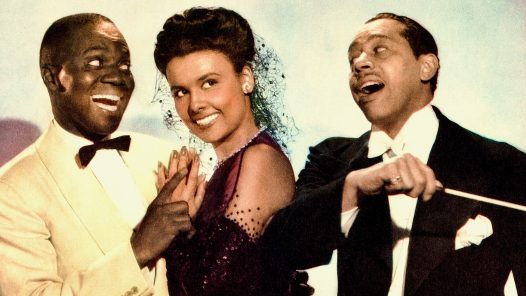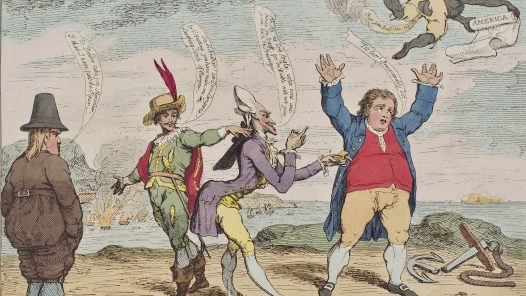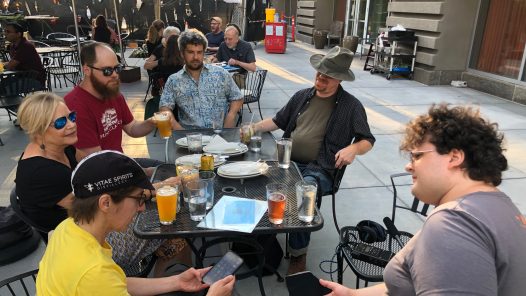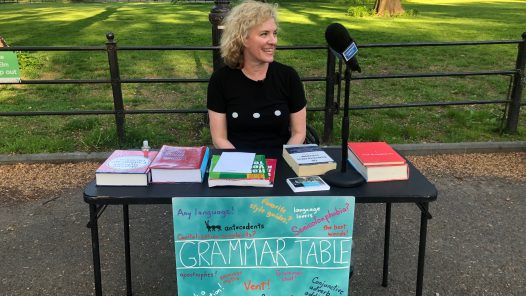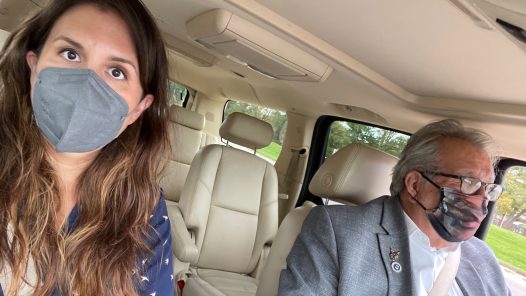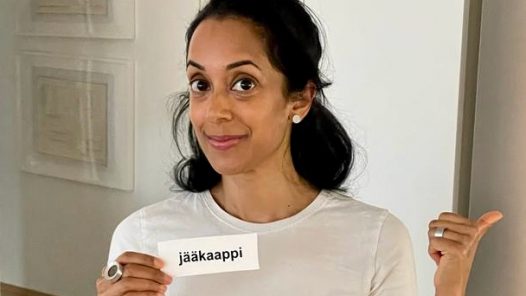Never heard of the Udi language? Get ready to be beguiled by this poster child for endangered languages. The history of the Udi people and their language includes an ancient kingdom, an exodus to escape persecution, and the creation of a bespoke...
If you want to know where African American English is headed, listen to Shondel Nero. Shondel was born in the Caribbean nation of Guyana where she code-switched between Guyana Creolese and colonial British English. As a young adult she moved to...
Guest host Ciku Theuri speaks with music writer Jordannah Elizabeth about the intimate relationship between music and Black American speech. That connection was never closer than in the 1930s and 40s when Cab Calloway’s Hepster Dictionary and...
Are the roots of African American English mainly African? Or English? Or something else? Linguists—and others—don’t agree. Ciku Theuri guides us through the theories. Opinions from Nicole Holliday, John McWhorter, John Rickford and Sunn...
Until recently, issuing a death threat required some effort. Today, anyone with a phone or computer can make a threat—or receive one. The result is a “golden age” for the dark realm of personal threats. Forensic linguist Tanya Karoli Christensen...
If Latin is dead, why is it easy to find meetups of people speaking it? Why is a group of scholars and lexicographers working on what has become a century-spanning Latin dictionary project? Former Latin student Cristina Quinn challenges Patrick Cox...
Ellen Jovin belongs to that rare breed of human with a passion for grammar. You will too if you spend a few minutes with her, your grammar anxiety melting away in minutes. That’s what happens when apostrophe-challenged Patrick meets Ellen at...
Steve Jobs’ last words were: “Oh wow. Oh wow. Oh wow.” Oscar Wilde went with: “Either that wallpaper goes, or I do.” (At least, that’s how the story goes.) But the way most of us part company with language at the...
How do you keep your language alive while also protecting the health of elders? That’s been the quandary facing Ojibwe educators during the pandemic. As native speakers, Ojibwe elders were the primary teachers of the language, but they were...
For centuries, Russians have dismissed the Ukrainian language as “Little Russian,” its speakers as simple-minded peasants. The Kremlin has sporadically and unsuccessfully tried to suppress the language. Now Russia’s invasion of...
Kavita Pillay recently moved to Helsinki with her Finnish husband and half-Finnish daughter. While husband and daughter effortlessly embraced their new linguistic surroundings, Kavita…didn’t. In this episode, she seeks guidance from...
We can’t always find words to describe our emotions—not in English, at least. In this episode, Saleem Reshamwala asks friends who speak other languages to share their favorite emotion words and phrases. He also seeks guidance from psychologist...

